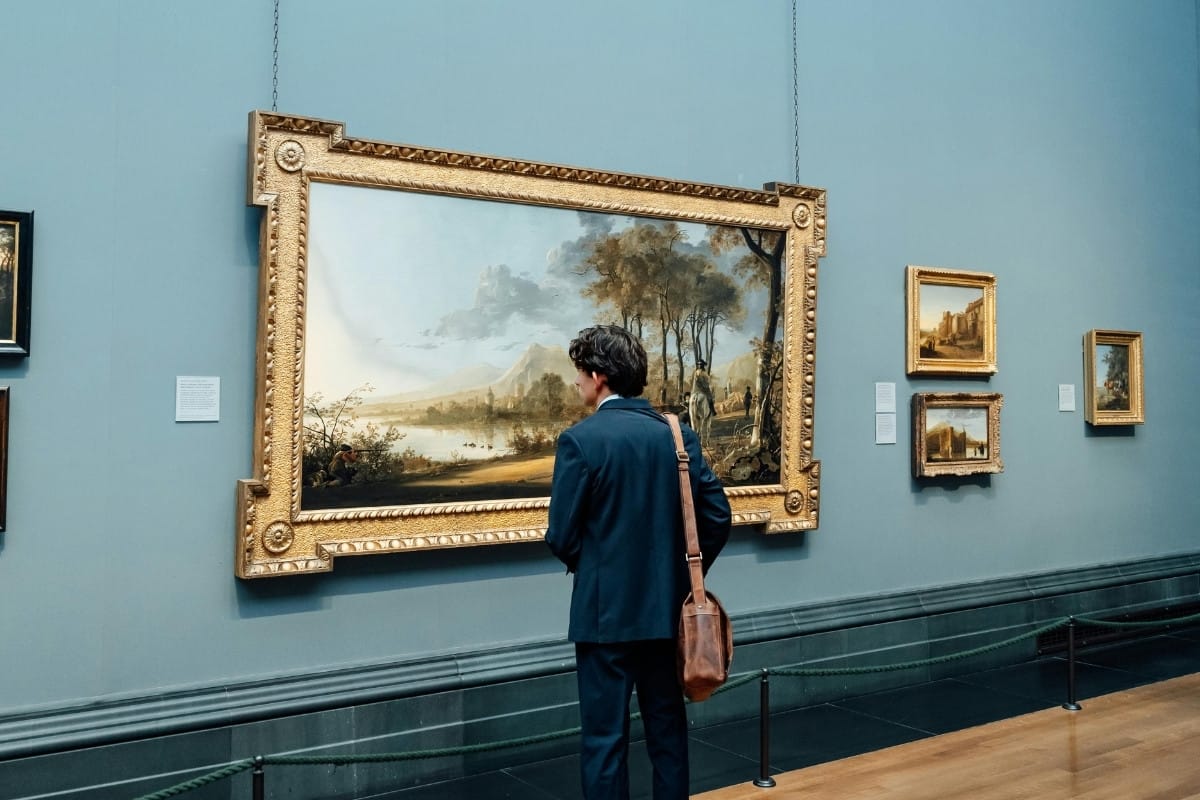In our busy, modern lives, we rarely cast our eyes to the heavens, yet recent research indicates that time spent looking at the sky can benefit our mental wellness
Do you remember what the sky looked like today? Forget the weather, what colour was it at any point in the day? The sky is our constant companion, but how often do we actively look up and appreciate it?
When we are young, the sky is a magical, ever-changing canvas. There are pictures in the clouds and legends behind the stars. But, when we grow older, it can become as commonplace as a beige ceiling.
Noses in our phones, we forget to look up — and that is our mistake. The sky has such an immense impact on our lives. From the moment we look outside, a banner of dark clouds or a cornflower blue sky can make all the difference. Or at night, glimpsing the silvery trail of a shooting star can light up an evening.
Our historical relationship with the sky
Throughout history, human beings have been slowly migrating inside. With every passing generation, we distance ourselves further from nature.
Think of the many ways that we used to rely on the sky. Rather than using phones or watches to tell the time, we would look up to the sun and the moon. Instead of GPS devices or maps, travellers would use the sky to plot their position and navigate. For so many people, the sky was at the heart of their stories, legends, and everyday lives.
The sun and the moon
For example, the ancient Greeks believed that the god Helios and his sister, the goddess Selene, controlled the movement of the sun and the moon. Helios drove a golden chariot pulling the sun across the sky, and Selene drove a white chariot that pulled the moon.
The aurora borealis
The Scots nicknamed the northern lights the “Merry Dancers”, but the story behind this name is far from cheerful. They believed the dancers were “fallen angels” or “sky warriors” who were in the throes of battle. To them, the vivid blend of colours in the sky were signs of the action.
There are countless stories around eclipses, constellations, and solstices. Yet our increasingly comfortable, scientific, and pragmatic societies continue to separate us from the outdoors and its many myths and legends.
What on earth is skychology?
There has been significant wellbeing research recently examining the physical and mental benefits of getting outside in blue and green spaces, like forests, rivers, oceans, and lakes. Yet, ironically, research about our interactions with the sky has often been overlooked.

Psychologist and wellbeing researcher, Paul Conway, set out to resolve this gap, coining his area of study, ‘skychology’. Through his research, he examined the impact the sky has on our wellbeing, and what people experienced when they looked up. He found that, for many people, the sky was something both extraordinary and ordinary. It was a universal and constant companion which equally connects, amazes, and grounds us, and has significant potential to benefit our mental health through its calming and meditative effects.
In Paul Conway’s 2019 study, for the University of London, participants were asked to share their experience of looking up at the sky. Interestingly, Dr Conway noted that, though few study participants had openly discussed their experience of looking at the sky before, when asked, they shared significant responses about how looking at the sky had impacted their lives.
Each person expressed their admiration for the sky, and one described the sky as an infinite and frameless “piece of art”, which ultimately prompted “existential questions about [their] place in the universe”.
Meanwhile, others knew in their core that getting outside would make them feel better and calmer in their selves. By actively looking up, especially alone, they found that the vast expanse “transcended [the] immediate”, putting things into perspective as they considered “the bigger picture”.
So, think back. When was the last time you had a meaningful conversation about the sky?
Ways to reconnect with the sky
It is time to lift our heads and turn our eyes upwards. Here are some ways to reconnect with the sky:
Start simple
The first step to appreciating the sky more is simply to see it more often. In our busy lives, it can be difficult to take the time to step outside, let alone go for a stroll and just stare upwards. On your next venture outside, leave your phone in your pocket and lift your gaze upwards for a few minutes. You might like what you find.
Give yourself a fresh perspective
Sometimes things need to be seen from a fresh angle in order to be appreciated. Take it from a former high-ropes instructor, the world looks very different, depending on where you are positioned.
Find someplace new to look up at the sky. You could climb a hill, take a trip to the ocean, or explore a different part of your village, town, or city. Just find somewhere that offers a different perspective from your everyday view.
Find the difference
Here is a challenge: over the next week, I want you to look up and notice the colour and texture of the sky. The Tate (UK institution including four art galleries) recommends spending up to 30 minutes looking at a painting to fully appreciate it. How long, then, should we spend looking at the sky, something which is ever-changing?

Ignite your inner artist
One of the best ways to appreciate something is to try to recapture it. We all have different talents, so why not channel your inner artist and capture the beauty of the sky. You could paint, photograph, or even write about the emotions it evokes.
Appreciate each phase of the day
There is something truly magical about watching a sunrise, sunset, or moonrise. To take the time to watch those colossal spheres rise up from nowhere, or disappear into the ether, and see the sky shift colours. Wherever we are in the world, we experience something similar, yet unique. In that way we are all connected.
Watching the sunrise or sunset can actually reduce stress, as the colours can trigger the release of the feel-good hormone, dopamine. Sunsets also naturally signal the end of the day, helping you to regulate your circadian rhythm, and lead to better sleep patterns.
Capture the most majestic moments
Wherever you live, there are so many spectacular sky-related events throughout the year. There will be eclipses, meteor showers, full moons, and even the aurora borealis (the northern lights). Look out for these key events, and, by watching them, become more in-tune with nature.
Learn the legends
Perhaps you will know a few more stories about the sky after reading this article, but there are plenty more waiting out there. Why not indulge in some fantastical stories, and learn more about the way different civilisations around the world have viewed the sky?


Comments